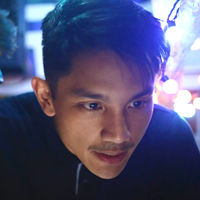
When the President promises violence, he usually delivers. At the very least, he tries his best. I have no doubt that Digong really wants to emulate Ferdinand’s Marcos’s martial law in its brutality, and that he craves for the nationwide power the dictator cemented in 1972.
Duterte’s disposition is harrowing, and advocates of liberal democracy should be very wary. However, though we should always be vigilant, authoritarianism is unlikely to re-emerge in the same guise. Our babyboomer mayor-president may think he is living in the 1970s, but things have changed a lot since then.
At the outset, we need to emphasize one aspect of Marcos’s “martial law,” namely that it was more than just martial law. Martial law is simply military rule over a defined place for a specific period of time. What Marcos did in 1972 is what political scientists call an autogolpe: a self-inflicted coup. Through proclamation 1081, he facilitated a military takeover of the system he led in order to install himself as dictator of a completely new regime.
After September 1972, our political blueprints changed as Marcos and the military drove out the opposition, padlocking congress, sequestering media outlets, and jailing dissenters. From the inauguration of the republic in 1946, the Philippines had been ostensibly a liberal democracy. After 1972, it became a tyranny.
Political scientist Benedict Anderson once remarked that Marcos had successfully taken the logic of violent local politics and nationalized it. If before 1972, you had oligarch warlords running cities and provinces with private armies, after 1972 you had one national warlord with a national private army to do his bidding: the armed forces.
National versions of DDS
Duterte salivates over replicating the Marcosian model. From his from press conference as president-elect, he has styled himself as “the mayor of the Philippines” and he obviously wants to turn the PNP and the AFP into national versions of the Davao Death Squad. In the eyes of the President, only through nationalizating the powers of a Davao warlord can his model of “kamay na bakal” be spread across the country.
But here’s the bad news for Duterte and the good news for pro-democracy activists: It is not so easy to pull an Apo Lakay. The man was sui generis in his ambition, his Machiavellian slyness, and his capacity to corrupt the best and the brightest. He also had aces Duterte has never had.
First, Marcos had some of the best legal brains and spin-doctors at his disposal to twist the legal system and deflect criticism. Yet where FM had legal luminaries like the immortal Juan Ponce Enrile, Duterte has the rhetorically challenged Calida and the sartorially challenged Panelo. And where Marcos’s ambassador to the media was the silver-tongued Kit Tatad, Duterte’s is Margaux.

To be fair, Digong’s men have run the most powerful social media campaign we have thus far seen, but Marcos’s appeal transcended simple propaganda: Of all presidents, he was the one who articulated a programmatic, albeit hypocritical, long term vision of what he wanted for the country.
Second, Marcos implemented martial law at a time when the legal constraints on the president were not as well defined. Say what you will about the 1987 Constitution, but its paranoia may end up saving us. Even if Congress abdicates its role to review martial law, we can still take them to task, because, well, at least they’re still there. And given the history of judicial cowardice during the martial law period, I doubt the Supreme Court under this chief justice will simply let the executive have its way.
Most importantly, Marcos had the luxury of time. To engineer a successful autogolpe, one needs strong support from the military. Marcos built this support, not by going around camps giving away Glocks as Digong does, but through slow, deliberate scheming. Alfred McCoy’s history of the Marcos military, Closer than Brothers, makes it plain that Marcos’s campaign to corrupt the military began as early as his first year in power. For 7 years (1965-1972), he eased out professional graduates from the PMA, retired critical voices, and promoted Ilocano lackeys like Fabian Ver.
Bid vs time
Marcos did the corrupting quietly, without the braggadocio and macho cursing of his 21st century imitator. It took more than two years for a critic, Ninoy Aquino, to point out in 1968 that Marcos was secretly creating a “garrison state” by “ballooning” the military budget and privileging overstaying generals. And even then some people thought Aquino was being paranoid.
Duterte does not have 7 years. His age, his health, and his term limit make his autocratic bid a bid against time. And as time runs out, Duterte will rush. And as he rushes, he will make mistakes.
But even if he executes his plans masterfully, he will still have to confront a military that is now more professional than ever. Decades of security sector reform after Marcos have yielded an AFP that will not simply allow itself to be used by politicians for anti-democratic ends. The Western Mindanao command, for example, has displayed incredible restrain amid these trying times. Matikas po ang ating mga kawal.
Of course absolute power can corrupt absolutely, and Duterte is a powerful and popular man. I worry about the state of our democracy and the stability of our institutions. Yet I will sleep tonight knowing that years of democratic consolidation cannot simply be overturned overnight.
I hope I am not being naïve. – Rappler.com
Lisandro E. Claudio (@leloyclaudio on Twitter) is an Associate Professor at the Department of History, De La Salle University-Manila.